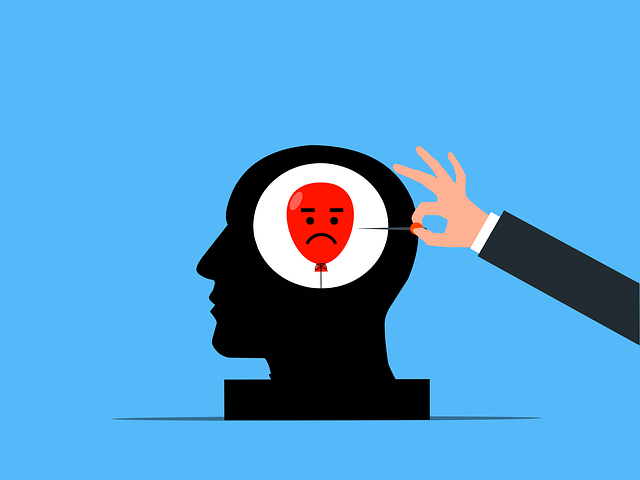One of the most common behaviors exhibited by individuals is analyzing everything around them.
This behavior can be seen in both personal and professional settings, where people tend to scrutinize every detail of their lives to understand themselves better or make informed decisions.
The reasons why some people engage in constant analysis while others do not have been a topic of interest for psychologists and researchers across different fields.
It is essential to gain insight into this phenomenon as it affects our daily lives’ quality, including relationships, work performance, decision-making abilities, and mental health.
Therefore, exploring the underlying factors that trigger constant analysis may provide valuable insights regarding how we perceive ourselves and interact with others.
In this article, we examine some theories put forth by experts on why people indulge in constant analysis and its implications for their well-being.
The Nature Of Overthinking
 As the famous adage goes, ‘analysis paralysis,’ overthinking can lead to a cycle of inaction and indecision.
As the famous adage goes, ‘analysis paralysis,’ overthinking can lead to a cycle of inaction and indecision.
The psychology behind this phenomenon involves a heightened sensitivity to perceived threats or stressors, leading individuals to ruminate on possible outcomes and consequences.
Overthinkers often struggle with decision-making due to their tendency to weigh every possible option extensively. This process can become overwhelming and result in analysis paralysis – the inability to make decisions altogether.
Furthermore, excessive analysis can cause unnecessary anxiety and even physical symptoms such as headaches and insomnia.
Breaking the cycle of overthinking requires intentional effort towards reframing thought processes. One effective method is cognitive restructuring, which entails identifying negative self-talk patterns and replacing them with more constructive statements.
Another approach is mindfulness meditation, which teaches individuals how to observe thoughts non-judgmentally rather than getting caught up in them.
Ultimately, understanding the psychology behind overthinking is crucial for breaking its hold on one’s behavior. By implementing strategies like cognitive restructuring and mindfulness meditation, individuals can learn to break free from the endless cycle of excessive analysis and regain control of their lives.
The Role Of Anxiety
From the previous section, it is evident that overthinking can be a common trait among individuals. Overthinkers tend to scrutinize situations and events in great detail, leading them to repeatedly analyze everything they encounter. Understanding the nature of overthinking provides insights into why some people are more prone to this habit than others.
One possible explanation for constant analysis is anxiety. Anxiety often manifests as excessive worrying or fear about future outcomes, which can lead an individual to dwell on past events and current circumstances. A cognitive behavioral approach may be helpful in treating overthinking associated with anxiety by challenging negative thoughts and beliefs that contribute to the behavior.
Another technique that has shown promise in reducing overthinking tendencies is mindfulness meditation. Mindfulness practices involve focusing attention on one’s present experience without judgment or distraction. This practice helps individuals become more aware of their thought patterns and habits, enabling them to recognize when they are engaging in unhelpful behaviors like analyzing every situation excessively.
Incorporating these techniques into daily life can help reduce the tendency to constantly analyze everything. By becoming more mindful of one’s thoughts and feelings and learning how to challenge negative thinking patterns through cognitive behavioral therapy, individuals can develop healthier coping mechanisms for managing anxiety-related compulsions such as overthinking.
The process of overcoming the urge to continuously analyze everything involves a combination of self-awareness, active intervention strategies, and consistent effort towards developing new habits. While there is no simple solution for eliminating overthinking entirely, utilizing approaches like cognitive-behavioral therapy and mindfulness techniques provide practical tools for managing this habitual behavior effectively.
The Influence Of Childhood Experiences
The analysis of one’s thoughts, actions, and surroundings is a common behavior observed in many individuals. The reasons for this tendency may stem from various factors such as personality traits, environmental influences, or past experiences.
In particular, childhood experiences have been found to play a significant role in shaping an individual’s cognitive and emotional development. Parental influence is one of the most crucial factors that shape an individual’s personality during their formative years. Parents serve as role models and provide emotional support to children while also instilling values and beliefs.
A positive parenting style promotes self-esteem and independence in children, leading them to develop healthy coping mechanisms later on in life. On the other hand, negative parental attitudes can lead to low self-worth and psychological distress. Traumatic experiences during childhood can significantly impact an individual’s mental health outcomes throughout adulthood.
Adverse events such as abuse, neglect, or exposure to violence can result in post-traumatic stress disorder (PTSD), depression, anxiety disorders, or substance use disorders later on in life. These traumatic events affect not only the person but also their ability to trust others and maintain healthy relationships.
It is essential to recognize that constant analysis could be attributed to various factors such as upbringing, personal tendencies towards introspection, or past experiences like trauma. Childhood experiences play a vital role in shaping our cognitive processes; thus identifying possible sources of toxic environments that cause long-term damage should be taken seriously by parents/guardians/teachers/etcetera since they have control over these environments when raising children.
By creating safe spaces with positive reinforcement instead of punishment-based learning methods where people feel comfortable expressing themselves without fear helps prevent future issues down the line concerning mental health problems caused by childhood traumas which resurface into adult lives if left unaddressed.
The Need For Control
Individuals who constantly analyze everything may be experiencing control issues. The need for control stems from various factors such as a lack of trust in others’ capabilities, fear of failure or uncertainty about the future.
Some individuals with perfectionism tendencies tend to overanalyze situations to ensure that they stay in control and prevent any unwanted outcomes. Control issues can manifest themselves in different ways, including micromanaging tasks, setting unrealistic expectations for oneself and others, and feeling anxious when things do not go according to plan.
These behaviors often stem from an underlying belief that one has more power or knowledge than others and that only they can get things done correctly. However, these beliefs are usually irrational and can lead to feelings of isolation, stress, and burnout.
Perfectionism is another factor contributing to constant analysis. Individuals with perfectionist tendencies seek excellence at all costs and often set high standards for themselves without considering their limitations or abilities realistically. They may spend hours analyzing every detail of a project or situation, nitpicking at small imperfections until it becomes perfect in their eyes.
This behavior can also contribute to procrastination since the individual fears getting started on work due to the possibility of making mistakes.
The need for control and perfectionism tendencies can result in constant analysis of situations. These behaviors have adverse effects on mental health and productivity levels since they create self-doubt, anxiety, and unnecessary pressure. Identifying these patterns early is crucial for seeking help from professionals who can provide support through therapy, counseling or coaching sessions.
By addressing these underlying issues head-on, individuals can learn how to manage their thoughts better while improving their overall well-being without sacrificing success.
The Search For Meaning
The constant analysis of one’s surroundings and experiences can be attributed to the search for meaning. This is a common phenomenon among individuals who are experiencing an existential crisis, which is characterized by a sense of confusion and lack of direction in life.
In this state, individuals tend to question their existence and purpose, leading them to engage in self-reflection techniques as they seek answers. One possible explanation for why some people analyze everything could be that it provides them with a sense of control.
By analyzing situations and searching for meaning, individuals feel like they have more agency over their lives. This may also help alleviate anxiety or feelings of uncertainty about the future. Another reason for constant analysis could be rooted in a desire for personal growth and development.
Engaging in self-reflection allows individuals to identify areas where they might improve themselves or make changes to align better with their values or goals. However, excessive analysis can lead to negative consequences such as decision paralysis or increased anxiety.
Therefore, it is essential to balance introspection with taking action towards achieving goals.
* To combat an existential crisis, consider seeking professional therapy.
* Developing mindfulness practices can help reduce anxiety around finding purpose.
* Engage in activities that bring joy outside of work or school.
* Keep track of progress made towards defined objectives.
* Embrace change rather than fearing it while giving yourself permission to take risks.
The Benefits And Drawbacks Of Analysis
The benefits and drawbacks of analysis are pertinent to individuals who constantly engage in the process. Analysis refers to the detailed examination of information, facts or data with critical thinking skills applied to deduce meaning from them. The analytical approach is a useful tool for decision making, but it may also have its limitations.
One benefit of analysis is that it allows one to make informed decisions based on available information. Through careful evaluation and consideration of all possible angles, an individual can arrive at sound conclusions that are likely to be effective. Critical thinking plays a key role in this process by challenging assumptions and biases while weighing up evidence before making any decision.
However, over-analysis can lead to indecisiveness which could result in missed opportunities or delayed action. It can also cause anxiety and stress as the constant need for reassurance through analysis becomes overwhelming. This implies that there needs to be a balance between being thorough and practical when analysing situations.
Another drawback of excessive analysis is that it tends to focus too much on detail rather than seeing the bigger picture. Over-analysers tend not to see beyond their immediate scope; hence they miss out on important aspects of what they’re trying to analyse. It’s crucial for people who overanalyse everything always remember that sometimes simplicity is best.
In summary, while analysis provides valuable insights into various issues we face daily, overdoing it has negative consequences such as becoming overly anxious and indecisive about everything without reaching any definite conclusion. Thus, striking a delicate balance between analyzing critically while keeping things simple will enable more efficient decision-making processes for those who find themselves constantly engaging in analyses.
Coping Strategies For Overthinking
Individuals who constantly analyze everything often face the challenge of overthinking, which can lead to distress and anxiety. Overthinking is a cognitive process that involves repetitive thoughts about past events or future possibilities. This mental state may hinder an individual’s ability to focus and make decisions, leading to negative outcomes.
Coping strategies for overthinking include mindfulness practices and cognitive restructuring techniques. Mindfulness practices involve paying attention to present experiences without judgment or distraction. It can help individuals become aware of their thoughts and emotions while remaining non-judgmental towards them. By practicing mindfulness regularly, individuals may develop better coping skills when faced with stressful situations.
On the other hand, Cognitive restructuring techniques aim to change one’s thought patterns by challenging irrational beliefs and replacing them with more realistic ones. Through this technique, individuals learn how to evaluate their thoughts objectively and identify any distortions in thinking that contribute to overthinking. With regular practice, cognitive restructuring can improve an individual’s resilience against stressors.
A nested bullet point list can assist individuals in incorporating these coping strategies into their daily lives:
– Mindfulness Practices
– Breathing exercises: Deep breathing helps calm the mind.
– Body scan meditation: Focusing on different parts of the body reduces physical tension caused by stress.
– Cognitive Restructuring Techniques
– Identifying automatic negative thoughts (ANTs): Recognizing ANTs allows one to challenge unrealistic beliefs.
– Reframing negative self-talk: Replacing pessimistic self-talk with positive affirmations boosts confidence levels.
Overthinking is a common problem that many people experience; however, there are effective ways of dealing with it. Applying mindfulness practices and cognitive restructuring techniques may decrease excessive rumination and enable individuals to think more clearly about problems they encounter. By actively working on managing their thoughts through these techniques, individuals can reduce feelings of anxiety induced by constant analysis.
Frequently Asked Questions
How Can I Tell If I’m Overthinking Or Just Being Thorough?
Analyzing versus obsessing is a common concern among individuals who tend to overthink their actions and decisions.
While being thorough can have its benefits, it is important to distinguish between healthy analysis and obsessive behavior.
Healthy analysis involves carefully considering different options before making a decision, while obsession entails fixating on every detail and outcome excessively.
The benefits of thoroughness include increased accuracy in decision-making, better problem-solving skills, and heightened attention to detail.
However, excessive analyzing can lead to indecisiveness and anxiety.
It is crucial for individuals to strike a balance between careful consideration and obsessive thinking to avoid negative outcomes such as stress or procrastination.
Can Overthinking Be Genetic Or Inherited?
The debate between nature vs nurture has been a long-standing question in the field of psychology. While some argue that traits and behaviors are purely genetic, others believe they are heavily influenced by environmental factors.
Research suggests that overthinking may be caused by a combination of both nature and nurture. Studies have shown that certain genes can contribute to the development of anxiety disorders, which often involve excessive worrying and rumination.
However, environmental stressors such as traumatic experiences or an overly critical upbringing can also lead to this type of behavior. Therefore, it is likely that overthinking tendencies are inherited to some extent but can also be shaped by one’s surroundings.
As psychological analysts continue to explore these complex dynamics, further insights into the role of environment and genetics on cognitive processes may emerge.
Is There A Difference Between Overthinking And Rumination?
Rumination and overthinking are often used interchangeably, but they have distinct differences.
Overthinking tends to be a more general term for excessive thinking about an issue or problem, while rumination is characterized by focusing on negative thoughts or feelings from the past or present.
Rumination can lead to depression, anxiety, and other mental health issues if left unchecked.
On the other hand, strategies such as mindfulness meditation and cognitive behavioral therapy have been found effective in reducing rumination and preventing its associated dangers.
It’s crucial to recognize the difference between overthinking and rumination and implement appropriate coping mechanisms accordingly.
Can Overthinking Lead To Physical Symptoms?
Overthinking is a common trait among many individuals, and it can result in various physical consequences.
For instance, some people may experience headaches or fatigue due to the constant mental strain of analyzing every situation they encounter.
Additionally, overthinking can lead to anxiety and stress, which can negatively impact one’s overall well-being.
Coping mechanisms such as mindfulness practices and cognitive-behavioral therapy have been shown to be effective in reducing overthinking tendencies and mitigating its physical symptoms.
Therefore, it is important for individuals who struggle with overthinking to seek out appropriate coping strategies to prevent potential long-term health effects.
Can Therapy Help With Overthinking Tendencies?
Therapy can be an effective means of addressing overthinking tendencies. The benefits of therapy include providing individuals with coping strategies to manage their excessive rumination and worry.
Cognitive behavioral therapy (CBT) is a popular therapeutic approach that helps clients identify and challenge negative thought patterns. Mindfulness-based interventions are also commonly used to teach individuals how to stay present in the moment and reduce repetitive thinking.
Ultimately, therapy can help individuals develop healthier ways of processing information and managing stress, reducing the frequency and intensity of overthinking behaviors.
Conclusion
Overanalysis can be a common trait among individuals who are highly conscientious or anxious. However, there is a fine line between being thorough and overthinking every little detail. It’s important to recognize when your thoughts become repetitive and unproductive.
Overthinking tendencies may also have a genetic component, as research suggests that certain personality traits may run in families. Rumination differs from overthinking in that it involves obsessively thinking about past events rather than current or future situations. Both rumination and overthinking can lead to physical symptoms such as headaches, fatigue, and muscle tension.
Therapy interventions such as cognitive-behavioral therapy (CBT) can help individuals develop coping strategies for managing excessive worry and negative thought patterns. As the adage goes, ‘analysis paralysis’ refers to the idea that too much analysis leads to indecision and a lack of action.
In conclusion, while analyzing information is an essential skill in many areas of life, it’s crucial to find balance and avoid becoming consumed by overthought. Seeking professional support can provide helpful tools for those struggling with overthinking tendencies to manage their thoughts more effectively.









